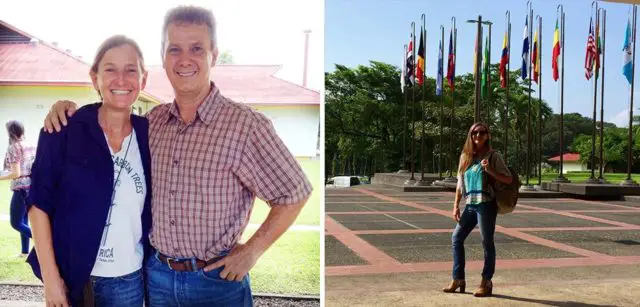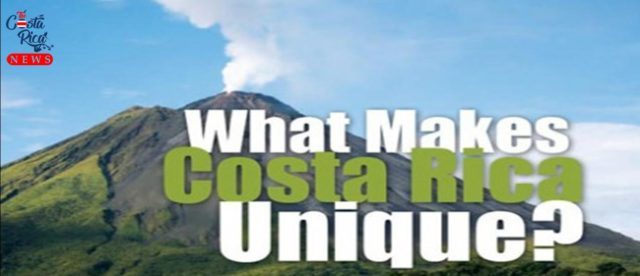In our country there are people focused on doing much good to those around them and to their natural surroundings; moving forward with projects to give back to our planet the life and love necessary.
In this particular case, we are talking about a person who today has a team, a company that has been fulfilling its objective to raise awareness, generate more life and water to our planet.
Have you ever read or heard of Community Carbon Trees?
Founded in 2009, as a socially responsible reforestation nonprofit organization. It is focused on the reforestation model of ACCT, as a solution that will be implemented worldwide. The Association Community Carbon Trees (AACCT) model generates profits with a balance in society, the economy and the environment.
But who is behind all this?
Jennifer Leigh Smith, who for 17 years has been willing to discuss the AACCT model and make presentations on climate change on a case-by-case basis. Her specialty is social, economic and environmental justice through sustainable and collaborative tree planting.
ACCT work “teams”, including local women, keep young trees in the rainforest for four years. This includes at least three supervised visits per year for maintenance and cleaning. Trees are well established to ensure long and fruitful life and maximum carbon sequestration. Here Costa Rican farmers and families take care of the trees for the next 21 years to cultivate a mature and abundant forest, always receiving instructions from ACCT.
Has Jennifer always been inspired by environmental justice?

Jennifer Leigh was raised in Louisiana where she earned her Ph.D. in law from “Louisiana State University” 1993. After practicing as a lawyer for 7 years in Louisiana, she decided to leave the office and participate more directly in her personal mission to help mitigate environmental problems, including climate change.
Jenny learned on her family’s estate, planting trees and conserving forests as part of good land administration, which for her at that time was a good business, helpful for everyone involved, including flora and fauna.
Already bilingual in Spanish, Jenny moved to Costa Rica in 2000, to plant trees and help in the conservation of forests in the South and Central Pacific of Costa Rica, where she created her reforestation company.
Jenny offers educational presentations on climate change for groups, schools, businesses, conferences, and festivals. She is well informed about the many problems of climate change and business-friendly solutions that help solve them. She graduated from the Carbon Neutral Program at the University of the Earth and is a certified carbon auditor and information systems specialist.
The reason why she has been working in Costa Rica and not in another country?
According to Community Carbon Trees, Costa Rica is privileged in planting trees to combat global warming. This beautiful Central American country is within ten degrees from the equator, where trees grow 365 days a year. Continuous growth rates without a hibernation period represent the largest amount of carbon sequestration. The South Pacific Zone of Costa Rica is one of the few places on Earth with intact stretches of healthy tropical rainforest remains.
More than 25% of the landmass is protected in National Parks and public and private land reserves. Natural features such as trees and rivers receive constitutional protection. There also are laws to protect trees from indiscriminate felling.
During an interview with TCRN, Jennifer Leigh Smith made known her intentions for Costa Rica and the world, through her projects, how many trees are planted, her purposes for the next year 2020 and why do these activities and not others?
What Jennifer states as the goal for the Association Community Carbon Trees, “is to involve women and men in the process, from the seed to grow a very diverse forest full of products, animals, flora and fauna, clean water, abundant soils regenerated and fertile”;
The problem has always been that deforestation for the economic benefit of few, has resulted in the degradation of the land and after five to seven years the layer of fertile land is eroded by heavy rains and the very strong summer sun.
Previously, in Costa Rica, those lands were not really appropriate for improvements, but rather people received subsidies from the government in the 70s, multinational corporations were deforesting. Today the results are farms that are completely “dead”, they do not support animals, much less agriculture, they also become dependent on pesticides, herbicides, fertilizers.
To solve the problem of land regeneration, It is champion not only in creating awareness and education but also with fair payment for the people who work with them, for all the work, from producing the tree to those making the land fertile.
It has groups of tree-planting women who work on their own farms. They replace every tree that dies during the first four years so that the growing forest matrix maintains healthy competition. These women are paid the same salary as men. “We create opportunities for small businesses to work with the farmers to design the projects, solve their problems, transport the trees and take care of them. The monitoring and maintenance of trees are extremely important.
The social impact that this incredible association has generated has been gigantic, the organization pays everything, so the program sponsors the tree, in six years of work each tree is cleaned, a total of thirteen times, over the four years, after planting and then returning for further control around six years.
2020 goals
“We want to move forward, raise all possible funds, we have in view to establish more cooperations with social and environmental responsibility, absorbing carbon from trees”. “Every year we are growing, we want to involve businessmen, artists, people who have a concern about climate change and want to do something real, something that tells the planet we love the future generations”. “The goal is one million trees planted, protected and care for, we are now at 558,000 trees well grown in the last 17 years”.
“If more people participate and if we can make bigger collaborations with entrepreneurs, we can calculate the carbon footprint, so that the cooperations can also do their advertising campaign and part of the reciprocity, the responsibility of customers, demonstrating that they are choosing a group that truly is thinking in all aspects not only giving away trees”.
“The tree is not free, although it gives us all those benefits, there clearly have been problems, sowing African palm, monocultures, and more cattle; all this has not helped our effort, we have to diversify and plant forests full of nutrients, water, and air”. “Reforestation begins with a seed, collected from more than 100 native species and germinated in one of our nurseries. Local men and women are paid to plant and maintain young trees for four years, ensuring the establishment and longevity of the tree”. Currently, Jennifer on her website, showed the results after 4 years of AACCT working together with Jeremy Jones on a farm called Eco Chontales in Costa Rica.
Everyone counts worldwide
In July 2019, for the first time, scientists identified how many trees to plant to help stop the climate crisis and how much carbon they would store. In its most recent study, Crowther Lab at ETH Zurich investigated nature-based solutions to climate change. The main author of the Crowther Lab study Dr. Jean-François Bastin explained: “An aspect of particular importance for us when we made the calculations: is that we excluded cities or agricultural areas from the potential of total restoration since these areas are necessary for life human “.
The researchers calculated that under the current climatic conditions, the planet could stabilize with 4,400 million hectares of continuous tree cover. That is 1.6 billion more than the 2.8 billion hectares currently in existence. Of these 1.6 billion hectares, 0.9 billion hectares meet the criteria of not to be used by humans, this is equivalent to the size of the continental United States, for tree restoration.
Once mature, these new forests could store 205 billion tons of carbon: approximately two-thirds of the 300 billion tons of carbon that have been released into the atmosphere as a result of human activity since the Industrial Revolution.
On October 24 of this year 2019, an $ 85 million initiative to expand agroforestry in Africa was established. An NGO coalition recently announced “the largest land restoration project ever seen”, beginning with an $85 million project to expand agroforestry in Tanzania, Uganda, Malawi, Zambia, Kenya, and Ethiopia.
Agroforestry is the practice of growing trees, shrubs, herbs and vegetables in a manner that mimics a forest, and is credited as a way to sequester carbon thus avoiding a hotter world climate while at the same time feeding people and providing habitat for biodiversity.
The EverGreening Global Alliance aims to capture 20 billion tons of CO2 annually by 2050, and it is said that this first project covers an area the size of the US state of New Jersey.
Another project: Green Up, is conceived as a massive extension of the Natural Regeneration Managed by Farmers (FMNR): the promotion of the regeneration of trees and shrubs that sprout from stumps, roots, and seeds found in degraded soils, such as those that are currently in agricultural production. and others with complementary practices in a strip of land inside the African nations of Tanzania, Uganda, Malawi, Zambia, Kenya, and Ethiopia.
It is admirable the constancy, love, and commitment of all these initiatives for saving our planet. Jennifer is an example of this: the eco-knowledge transmitted to communities.
We at The Costa Rica News (TCRN), are sure that, they will not only achieve the one million trees planted goal, but much more.

